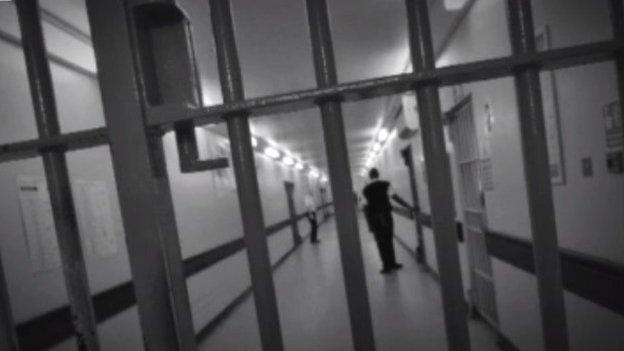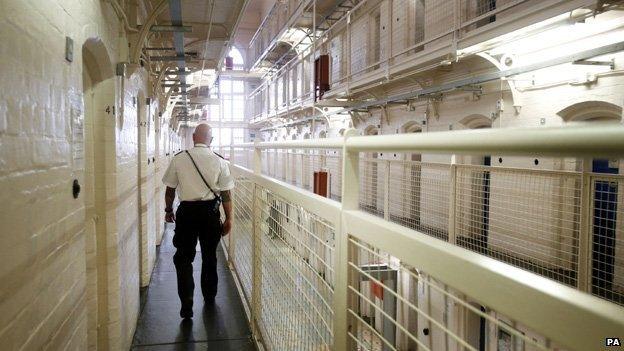Prison automatic early release reforms criticised
- Published

Criminal justice experts have strongly criticised Scottish government proposals to reform the rules governing the automatic release of prisoners.
They claimed ministers had changed "beyond recognition" a bill which is currently before MSPs.
Initially it sought to end automatic early release for those serving sentences of more than 10 years and sex offenders serving more than four years.
Ministers now want to end it for all those jailed for more than four years.
Prisoners are currently eligible to apply for parole after serving half of their sentence.
They are released automatically after two-thirds of their jail term.
But in February ministers said all long-term prisoners should serve their full term and be supervised in the community on release.
They argued that the proposed changes to the Prisoners (Control of Release) (Scotland) Bill, external would punish serious crime and protect the public.
At the time, experts raised concerns about prisoners being released "cold" after serving all of their sentence in prison, rather than spending some of it supervised on licence in the community.
'Insufficient time'
In a briefing to MSPs ahead of a final vote on the legislation this week, a group of academics and criminal justice charities claimed that there had been insufficient time to examine the new proposals.
They also criticised the "mechanistic" approach of reducing supervised release to just six months for all long-term prisoners, arguing that the fixed term was "arbitrary and not based on empirical evidence".
The critics, who include senior academics, Howard League Scotland and the Scottish Association of Social Workers, argued the proposals were likely to jeopardise public safety, as "rehabilitation and reintegration take time, especially where someone has been incarcerated for many years".
They wrote: "Proponents of the bill have failed to explain how moving from a compulsory supervision period that is proportionate to the length of the original sentence to a blanket six-month period for all long-term prisoners, regardless of sentence length, better serves the interests of public safety."
In conclusion, they said: "We can only draw the conclusion that this bill does not achieve its originally stated aims."
They said it would not reduce reoffending and would not improve public safety.
"Indeed it is likely to jeopardise both public safety and reintegration," they said.
"Furthermore, the bill misses the opportunity to better clarify sentencing and release policy.
"It may well be possible to combine the virtues of public safety with clarity in sentencing, but unfortunately this bill appears to achieve neither."
'Government has listened'
A Scottish government spokesman said: "The Scottish government has listened and responded to views during the passage of the bill.
"The Prisoners (Control of Release) (Scotland) Bill will, if approved by parliament, end automatic early release for all long-term prisoners with an extended sentence, and restrict automatic early release to the last six months of sentence for other long-term prisoners.
"This will help protect the public while ensuring a period of supervision in the community for all long-term prisoners leaving custody.
"The aims of the bill are in line with the recommendations of the Scottish Prisons Commission (2008), to 'target the use of prison where it can be most effective - in punishing serious crime and protecting the public'."
- Published3 February 2015
